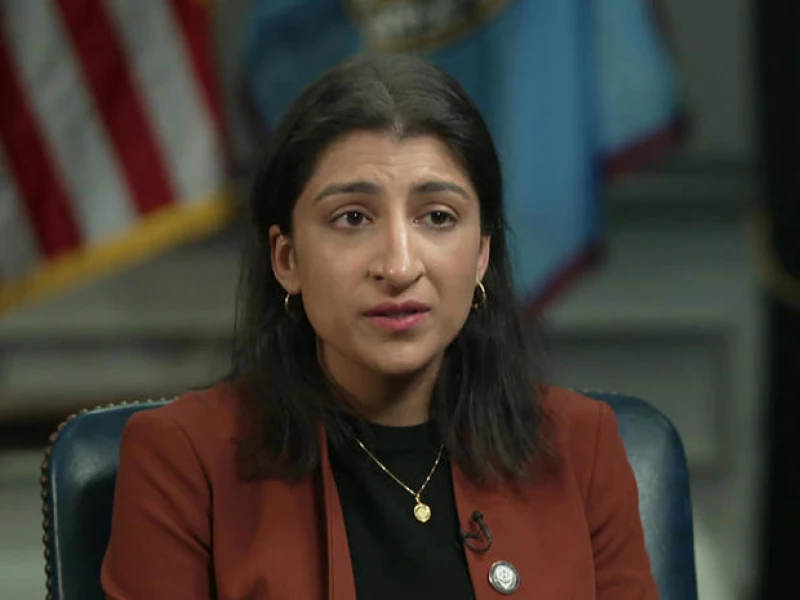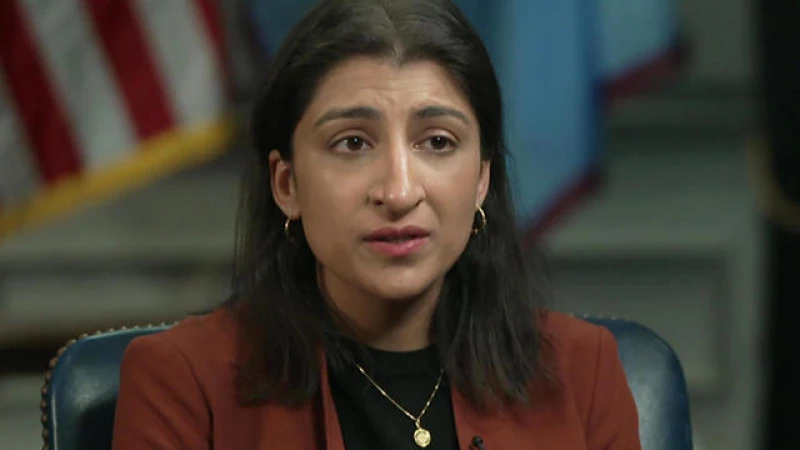Monopoly is the game where you bankrupt competitors, buying up the board and charging sky-high prices. But in Washington, Lina Khan is playing a different game: Anti-Monopoly. "The experience is not quite akin to playing a board game, but there are challenges and unpredictable swerves," said Khan, chair of the Federal Trade Commission.
And she has rolled the dice, with one buzzy lawsuit after another, going after Big Tech (suing Microsoft to block its proposed $69 billion acquisition of Activision), Big Pharma (suing to block Amgen's $27.8 billion deal to acquire Horizon Therapeutics), even Big Grocery (suing to stop a proposed $25 billion deal between Kroger and Albertsons, the largest grocery store merger in U.S. history).

The FTC is an independent watchdog and warden of competition in business. "When you have companies that are not disciplined by competition, oftentimes they can get away with abusing their customers; firms can become too big to care," said Khan. "There can be this basic indignity of being a consumer in America today. And that's what the FTC's trying to fix."
Inspired by the Golden Age of trust-busting, Khan recalls a time when the government dismantled big oil and railroad monopolies. She criticizes recent decades for being too lenient and cozy with large corporations: "There was a shift in policy in the '80s towards a hands-off approach. I believe we are now facing the consequences of those decisions."
She points to the consolidation of the U.S. aerospace industry as a costly outcome of this approach. "In recent months, we have witnessed how Boeing's lack of competition has resulted in various issues," she noted.
Khan's prominent case involves Amazon, where she argues that the company's tactics unfairly penalize sellers on pricing. "They can remove sellers from the buy box, essentially making them invisible in search results," Khan explained. "Many small businesses fear Amazon, knowing that a single click can cause an 80% to 90% drop in sales. Overnight, a business could face bankruptcy if it falls out of favor with Amazon."
Amazon has pushed back, claiming that its practices benefit customers by offering competitive deals.
- FTC and 17 states file sweeping antitrust suit against Amazon
- Amazon sued for allegedly signing customers up for Prime without consent
- Amazon used algorithm to essentially raise prices on other sites, FTC says
Khan's scrutiny of the online megastore began as a star law school student, and that stardom has only grown for the 35-year-old, earning praise from so-called "Khanservatives." Republican Senator J.D. Vance described Khan as "one of the few people in the Biden administration that I actually think is doing a pretty good job."
Her critics are just as fervent, casting her as an overreaching, anti-business crusader. "Mad Money" host Jim Cramer labeled Khan "a one-woman wrecking crew for your stock portfolio," and at a July 2023 committee hearing, Republican Congressman Darrell Issa called her "a bully."
Asked whether she thinks there is a risk for the FTC to take an aggressive approach against big companies, Khan said, "Our focus is on making sure that we are enforcing the rule of law. And I see an enormous amount at risk if you instead sit on your hands and don't address the problems that people face in their day-to-day lives."
Khan's next move? Investigating pharmacy benefit managers, including OptumRx, Express Scripts and CVS Caremark.
In Philadelphia this month she met with independent pharmacists, who say these prescription drug middlemen are hurting their bottom lines and their patients. [According to the National Community Pharmacists Association, more than 300 independent pharmacies shut their doors in 2023.]
One man at the meeting told Khan, "My voice is asking, it's pleading with you: something has to be done."
In a bold move, Lina Khan is sending a clear message to corporate America: monopolies belong in board games, not in the business world.
For more info:
Story produced by Dustin Stephens. Editor: Joseph Frandino.







